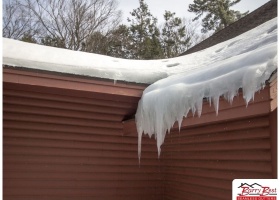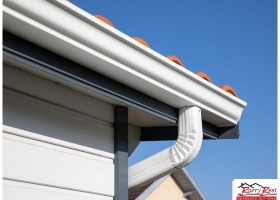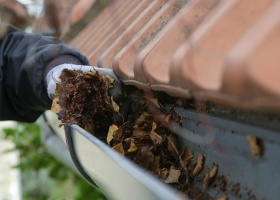An efficient gutter system is essential to your home’s protection against extensive water damage. It can help prevent costly issues, including roof damage, basement flooding, foundation problems and erosion. Moreover, regular cleaning can help ensure your gutters remain in excellent condition. Here’s how often you should schedule a cleaning service with your gutter contractor.
… Continue ReadingWhy You Shouldn’t Use Salt to Fix or Prevent Ice Dams
As winter approaches, many homeowners may be tempted to use salt to prevent the formation of ice dams on their roofs and gutters. It seems like an easy solution, but it’s a course of action that can cause more harm than good. Keep reading to learn why experts don’t recommend using this method and discover safer alternatives.

Gutter Protection: How Can It Benefit You in Winter?
Winter conditions can be harsh on your home’s exterior. During the colder months, do not forget to care for your gutter system. You could face serious problems if they become inefficient or develop issues, including ice dams and water damage.

Regular Gutter Cleaning: How It Can Reduce the Risk of Fires
The primary purpose of gutters is to protect your home’s exterior, foundation and landscaping. Over time, leaves, twigs, seeds, pine needles and other debris can accumulate in them. You must have them cleaned regularly to reduce the risk of clogs and to ensure they remain efficient. Besides water damage, clogged gutters can create fire hazards in your house.

Which Household Chores Can Put Your Safety at Risk?
Maintenance can contribute to the longevity of your home. It will save you money from costly repairs and aid in keeping your living space safe. When you decide to sell your property in the future, the process will be more manageable if you take good care of your house. Buyers often find well-kept homes more valuable and attractive than poorly maintained ones.










